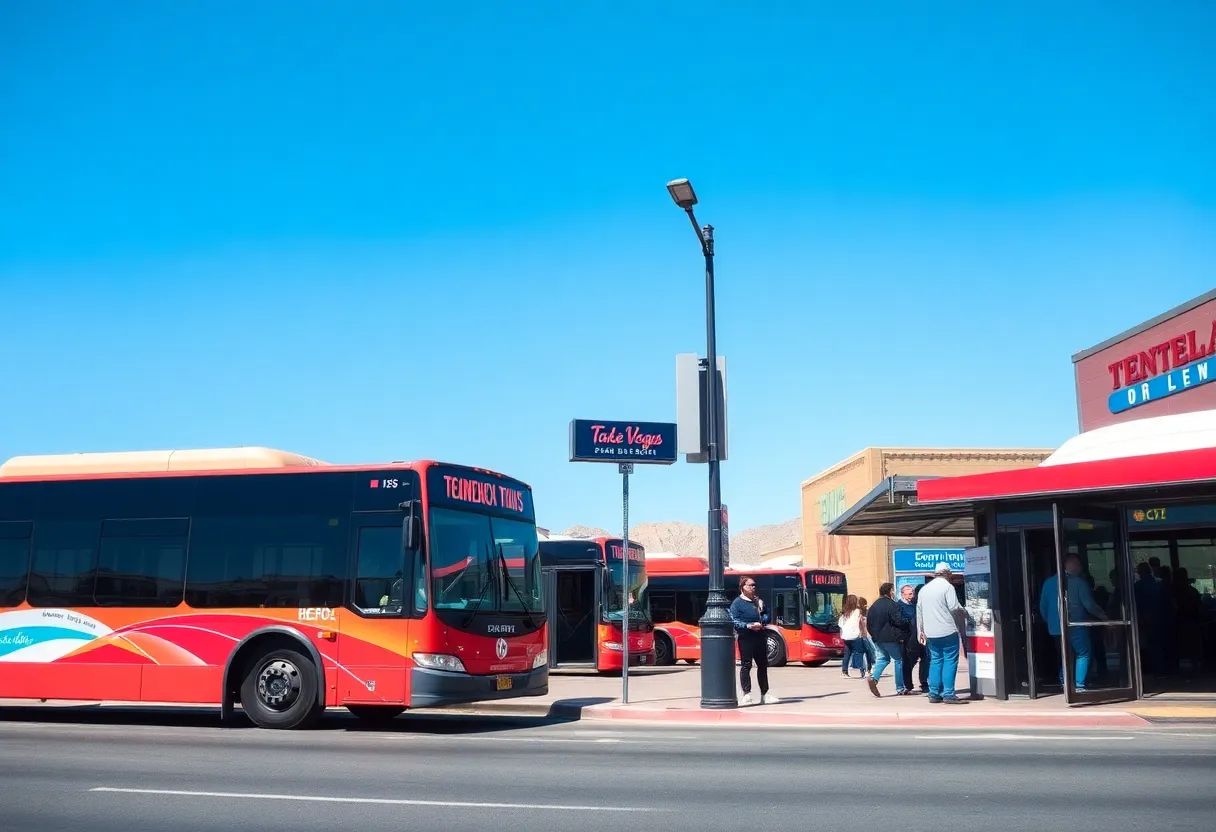News Summary
U.S. Representative Dina Titus introduces the BUFFER Act, aimed at increasing spare bus ratios for transit agencies in hot regions. The legislation seeks to address bus breakdowns caused by extreme heat, allowing agencies to increase their spare buses from 20% to 30%. With significant challenges to transit reliability in Southern Nevada due to rising temperatures, this act is expected to provide much-needed support to accommodate growing ridership and ensure public health and safety.
Las Vegas – U.S. Representative Dina Titus has proposed a significant piece of legislation called the Bus Utilization for Fleet Flexibility and Emergency Resilience Act, or the BUFFER Act, aimed at addressing the frequent bus breakdowns caused by extreme heat. The proposed act will increase the allowable spare bus ratio for transit agencies in regions facing severe weather conditions from 20% to 30%. This legislation primarily aims to benefit transit agencies in the Southwest, including Southern Nevada, Southern California, and Arizona, where summer temperatures often exceed 100 degrees Fahrenheit.
The BUFFER Act is expected to provide much-needed flexibility to transit agencies like the Regional Transportation Commission (RTC) of Southern Nevada. Currently, the RTC can operate around 81 spare buses under federal regulations; however, with the increased ratio, this number could rise to 121 spare buses. The RTC reported over 52.2 million riders in the fiscal year 2024, showing a substantial increase from the 49.6 million riders in 2023. The agency’s on-time performance has unfortunately declined from 87% in 2020 to 76% in 2024, signaling a pressing need for improvement in transit reliability.
Extreme heat presents challenges not just for buses but also for passengers. It is reported that approximately 80% of transit riders depend on buses for their daily commutes. Despite efforts to manage these challenges, the RTC faces constant strain on its resources due to increased wear and tear on buses caused by heat, leading to frequent maintenance and service disruptions. This situation is further exacerbated by the fact that only about 1,761 out of 3,700 bus stops in Las Vegas provide any form of shade, with 1,659 located in areas severely affected by high temperatures.
Clark County has reported 114 heat-related deaths in 2025, a significant drop from 526 deaths the previous year. Still, the numbers underscore the pressing health risks posed by extreme heat in the area. The RTC operates approximately 400 buses and relies on federal funding for bus purchases. However, the agency is grappling with the realities of rapid population growth and ongoing climate challenges, which have made it difficult to maintain transit reliability.
The BUFFER Act has gained backing from the Democratic members of Nevada’s congressional delegation, who are advocating for the Federal Transit Administration (FTA) to revise the federal spare bus cap limits. The push for these changes is emphasized by a 2022 NOAA study, which mapped urban heat islands and identified certain Las Vegas locations prone to even higher temperatures. Furthermore, over 40% of surveyed transit agencies acknowledged experiencing bus availability issues, while 75% believe revisions to the FTA’s spare ratio policy would enhance vehicle availability.
Events in Las Vegas, such as the Super Bowl and the Formula 1 Grand Prix, demand effective public transit solutions to accommodate millions of visitors. In response to these pressing circumstances, the RTC’s CEO, M.J. Maynard-Carey, has highlighted the urgent need for updated policies that reflect the challenges posed by rapid growth and extreme weather.
Although there has been no companion legislation to the BUFFER Act introduced in the U.S. Senate as of yet, the proposed act aims to ensure that reliable transportation services remain accessible for residents and commuters, which is crucial for both public health and economic stability in the community. As the situation continues to evolve, the comprehensive approach of the BUFFER Act could play a significant role in reshaping the transit landscape in Southern Nevada faced with increasing temperatures and rider demands.
Deeper Dive: News & Info About This Topic
HERE Resources
Experts Address Confusion Over Food Expiration Dates
U.S. Stocks Surge Amid Positive Jobs Report and Trade Talks
Additional Resources
- Las Vegas Sun: Extreme Heat Drives Push in Congress for Additional Buses
- Wikipedia: Public Transport in the United States
- Nevada Current: Titus Introduces Bill to Help RTC Get More Buses
- Google Search: Bus Transportation in Las Vegas
- News 3 LV: Lawmakers Push for More Spare Public Buses
- Google Scholar: Public Transport and Climate
- X107.5 Las Vegas: Nevada Leaders Push for More Backup Buses
- Encyclopedia Britannica: Public Transport
- Quiver Quant: Senator Jacky Rosen Leads Push for Increased Bus Reliability
- Google News: Las Vegas Public Transport

Author: STAFF HERE LAS VEGAS WRITER
The LAS VEGAS STAFF WRITER represents the experienced team at HERELasVegas.com, your go-to source for actionable local news and information in Las Vegas, Clark County, and beyond. Specializing in "news you can use," we cover essential topics like product reviews for personal and business needs, local business directories, politics, real estate trends, neighborhood insights, and state news affecting the area—with deep expertise drawn from years of dedicated reporting and strong community input, including local press releases and business updates. We deliver top reporting on high-value events such as Electric Daisy Carnival, World Series of Poker, and Consumer Electronics Show. Our coverage extends to key organizations like the Las Vegas Chamber of Commerce and Three Square Food Bank, plus leading businesses in hospitality and entertainment that power the local economy such as MGM Resorts International, Caesars Entertainment, and Las Vegas Sands. As part of the broader HERE network, we provide comprehensive, credible insights into Nevada's dynamic landscape.



